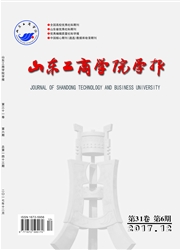

 中文摘要:
中文摘要:
针对现有效率测度模型的缺陷,本文采用三阶段超效率 DEA 模型的Malmquist - Luenberger指数法,对长江经济带生态效率进行测算,同时借鉴新古典经济增长的收敛性假说,探究其收敛性.结果显示调整后整体及上、中游生态效率增长率降低,下游几乎没有变化,说明上、中游处于较好的外界环境和运气状态;外界环境变量对生态效率的投入产出松弛变量存在显著影响,且影响方式不同,有必要进行第二阶段调整;整体及上中下游生态效率不存在σ 收敛,整体及上游存在绝对β 收敛,在经济发展速度、外资利用、产业结构、环境规制、能源消费结构和人力资源六种控制变量中,经济发展速度、产业结构和能源消费结构是促使其存在条件β 收敛的重要因素.
 英文摘要:
英文摘要:
Aiming at the shortcomings of the existing efficiency measurement model, using Malmquist - Luenberger index method in three stage super effciency DEA model to calculate the ecological effciency of Yangtze River Economic Belt. At the same time, the convergence of new classical economic growth is used to explore its convergence. The results showed that after adjustment, the overall and upper and middle reaches of the ecological effciency growth rate decreased, the downstream has almost no change. It shows that the upper reaches and the middle reaches are in good external environment and good luck. The external environment variables have signifcant effects on the input-output slack variables of ecological effciency, and different ways of infuence, it is necessary to adjust the second stage. There is no sigma convergence in the ecological effciency of the whole, upper, middle and lower reaches, and there exists absolute beta convergence in the whole and upstream. In the speed of economic development, utilization of foreign capital, industrial structure, environmental regulation, energy consumption structure and human resources six kinds of control variables, the speed of economic development, industrial structure and energy consumption structure are important factors in prompting the existence condition of beta convergence.
 同期刊论文项目
同期刊论文项目
 同项目期刊论文
同项目期刊论文
 期刊信息
期刊信息
